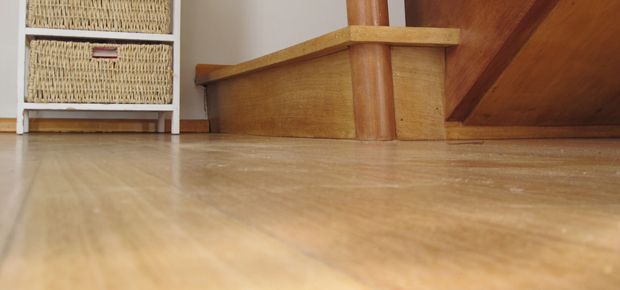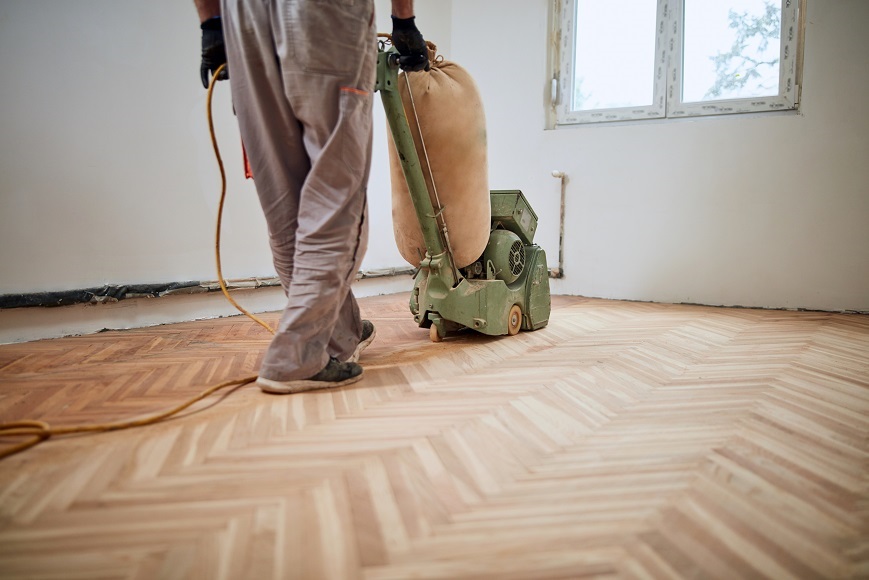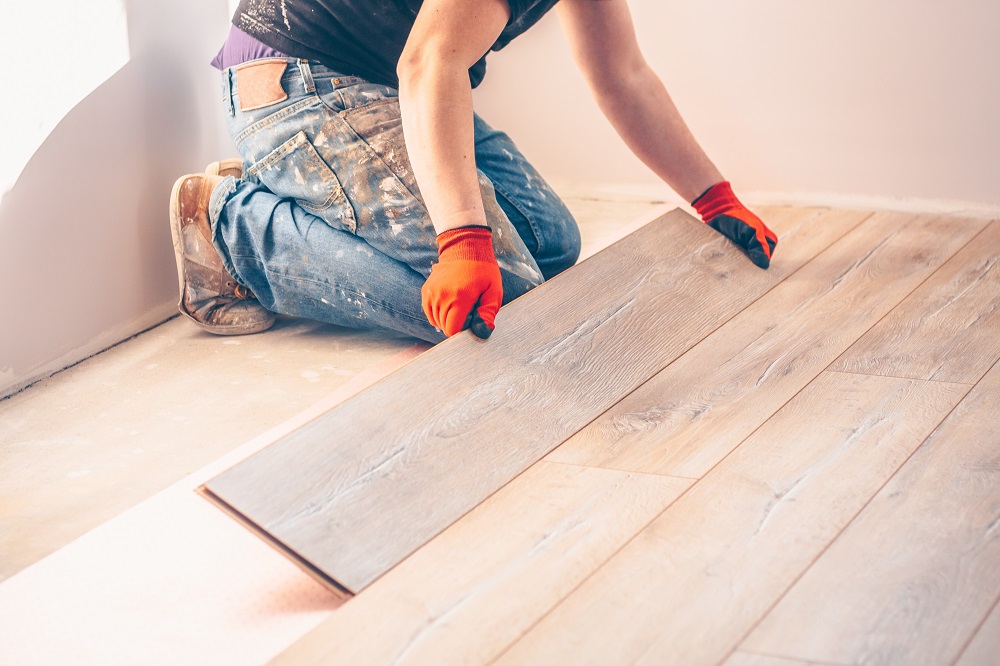The flooring system you choose is one of the most important decisions you’ll make during a home renovation, as it underpins everything else. There are plenty of different options to choose from, such as carpet, tiles, terrazzo, and more. However, only one is considered a classic: hardwood. Unfortunately, not all hardwood floors are created equally, and selecting the right product isn’t as simple as choosing your preferred colour. There are a couple of factors that can impact both aesthetics and performance.
Here are the most important things to know and consider when selecting a hardwood floor for your home.
The Level Your Floor Will Be On?
If your hardwood floors are to be installed in the basement, choosing engineered flooring would be best. Basements are typically below ground level, and there is a lot of moisture on the ground; engineered wood can withstand moisture, and solid wood can’t. Installing hardwood floors on a second story is different from doing it in a basement. The space beneath ground level is what’s known as below grade. A floor that’s even with the outside ground level is on grade, and any floors above this are above grade. Where you choose to have your wood installed will limit your options. For example, you’re not supposed to put solid wood below grade because the moisture coming up through the ground can cause problems.
Consider Your Lifestyle
Your lifestyle is one of the most important things to consider when choosing hardwood floors for your home. If you have kids or pets, your floor will be more exposed to scratches. If this is the case, you should choose a very durable wood floor system. If your lifestyle is more solitary, go for a softer wood and a natural oil finish since you don’t have to worry about scratches or stains.
What Species is Best?
The best hardwood floors are made using wood that is readily available and sturdy. Therefore, maple, cherry, and oak are all good choices. Other species to consider are walnut, mahogany, bamboo, and ash. Please note, if you choose an exotic species like mesquite, jarrah, or teal, you will have to pay a premium price.
Does installation require sanding?
If you choose solid wood floors, the floor can be sanded and finished only after it has been installed in your home. Thankfully, there are now advanced dust containment systems which reduce the dustiness of the entire process significantly. Solid wood floors also require time for the finish to dry on-site. With engineered wood floors, however, the finish is applied in the factory. This means there will be minimal dust and noise during the installation process. You also will be able to walk on your floors immediately after they are installed.
Engineered Hardwood vs Solid Hardwood

Engineered hardwood and solid hardwood floors are both durable and beautiful, so how do you decide between the two? You need to decide after taking into consideration the condition of the property and the floor you wish to install. Solid hardwood is best used in rooms that are on the ground floor or above because it expands in humid environments. On the other hand, engineered hardwood is more stable and doesn’t expand or contract as much as solid hardwood. It can be installed in any environment, including humid rooms like bathrooms and basements.
Hardness Ratings
The Janka hardness rating is used to measure the relative hardness of a wood species. During the test, the force needed to embed a steel ball is measured (.444 of an inch in diameter) to half its diameter into the piece of wood being tested. The higher the number, the harder the wood. This means the wood will be more resistant to indentations. If your floor will experience a lot of use, we recommend going for a species with a high Janka hardness rating like oak.
Polyurethane Finish or Natural Oil
Would you rather have the natural oil finish in place of the traditional polyurethane finish? A polyurethane finish sits on top of your hardwood floor, forming a layer of protection for your hardwood. A natural oil finish penetrates the wood and strengthens the wood fibers. If you choose to go with a natural oil finish, you will not have to worry about sanding at a later time.
What Wood Floor Colour Should You Choose?
Light, dark, or natural? The colour of the floor has a strong impact on the aesthetic and feel of a room. A dark floor absorbs a lot of light, but it also creates a sense of warmth and coziness. A light wood floor reflects the light and opens up a room. The one you choose should depend on the look you are going for.
Consider Board Width
The width you choose for your floorboards plays a major role in the finished look of your floor. You can get a lot done just by choosing different types of boards. For instance, narrow strips that are less than three inches in width give a more traditional look to a room. Wider planks look rustic and make space appear more open. Squares, rectangles, and other geometric designs are also options, but they are mostly used in commercial spaces because they give a room a formal appearance.
Character and Grade

The natural character of hardwood will vary depending on the species. Some species have a lot of colour and character variations like filled splits, filled knots, and large mineral streaks. You can choose a floor that has a casual or cozy look, or you can choose a floor that has little character in order to create a more polished, classic look.
Consider the Weather
The weather conditions where you live should be taken into account before you make your decision about the kind of hardwood floor you want, especially if your preference is for solid hardwood. Natural planks come in various sizes, and unless you can control indoor humidity levels, they’ll expand and contract with the changing levels of humidity; this can lead to swelling and potentially splintering in the boards. If you live in a very humid environment, we recommend going for engineered wood.
Construction
Hardwood floors can be installed on any level of your home and are available in various construction styles to make installation easy over different subfloors. However, it’s important to take moisture into consideration when you’re installing hardwood floors because changes in moisture can create issues such as gaping and warping. To reduce the effects of moisture on your floors, keep moisture levels within your manufacturer’s recommendations; make sure to use the right installation materials as well.
Quality of Timber
The quality of the timber is influenced by many things, such as how it’s felled, where it’s grown, how it’s dried, and how it’s finished. This, of course, will vary from manufacturer to manufacturer, and in our experience, the price is usually an indication of the quality level.
If you buy the cheapest product available, don’t be surprised when you begin to have problems with the floor splitting or buckling. Paying less at the beginning usually turns out to be just an expensive option in the long run because you’ll run up a tab by paying for constant repairs. Instead, go for quality hardwood backed by a guarantee to get the most out of your initial and long-term investment.
Which Wood Floor Type is the Most Durable?
The short answer is hardwood. Hardwood species like maple, oak, and cherry are some of the most durable species out there, which makes them suitable for rooms and spaces that are regularly used. Please note, they are also the more expensive wood flooring options.
If you are on a budget, go for a softer species like pine. It will show scratches more quickly but can be refinished and painted to keep up its appearance.
Things To Remember
- Lighter finishes make small spaces appear bigger.
- Pets and children call for harder wood flooring.
- Engineered wood is the most durable type of hardwood.
- Design choices like the floor’s texture and finish can make a big difference.
- Consider different species of hardwood to fit your budget.
In Conclusion – Talk with a Specialist Today, hardwood floors come with a lot of design options to fit every lifestyle. Before making a final decision, we recommend asking a professional to visit your home and assess all the work that will be required to successfully install your new floors. Floor Sanding Site has a team of flooring experts who will be more than happy to guide you through the process. Give us a call to get started.









